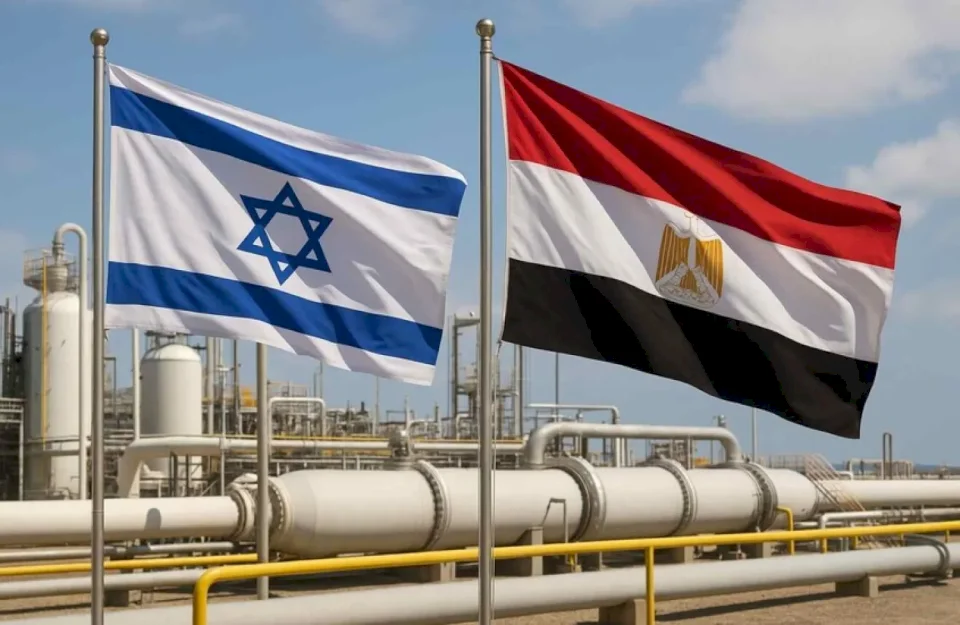
Israel Reduces Gas Exports to Egypt Due to Maintenance Work in the Tamar Field
SadaNews - Israeli gas imports to Egypt have dropped to about a third starting today, Wednesday, and for a period of 12 days, due to maintenance work in the "Tamar" field in the deep waters of the Mediterranean, according to a government official.
Egypt began importing gas from Israel in 2020 with a deal worth $15 billion between "Noble Energy" and "Delek Drilling," before renewing the agreement last August to add larger quantities and extend the supply period until 2040.
Egypt's current natural gas production is estimated at about 4.2 billion cubic feet per day, while the local demand is currently around 6.2 billion cubic feet per day, alongside a decline in fuel demand from power plants and a drop in temperatures.
Egypt Requests Additional Gas Shipments
The official, who spoke to "Asharq," revealed that "Egypt has requested suppliers to provide two additional liquefied gas shipments on top of the shipments designated for this month, estimated at about 15 shipments, to compensate for the decline in gas quantities coming from Israel."
Currently, three regasification ships operate in Ain Sokhna with a capacity of about 2.25 billion cubic feet per day, along with a fourth ship at Damietta Port, alongside a fifth ship in Aqaba as part of a cooperation agreement between Cairo and Jordan with a capacity of 300 million cubic feet per day. The fifth regasification unit contracted by Egypt is expected to begin operations this month.
Egypt received about 52 liquefied gas shipments in the third quarter of this year, with each shipment costing between $54 million and $57 million, while the price per million thermal units ranges between $13 and $14, based on a pricing formula linked to the global market, including transportation and shipping costs.
Increase in Supplied Quantities
The extension of the agreement signed last August between Egypt and Israel stipulates adding about 4.6 trillion cubic feet (equivalent to 130 billion cubic meters) of natural gas to the original agreement, distributed over two phases. The first phase includes exporting about 706 billion cubic feet (20 billion cubic meters) as soon as the amendment comes into effect.
The second phase stipulates exporting up to 3.9 trillion cubic feet (110 billion cubic meters), but it is conditional on meeting investment requirements and expanding the gas transportation infrastructure.
This deal is considered the largest among the energy agreements signed between Egypt and Israel and comes at a time when Cairo seeks to enhance its gas supplies to meet local demand and support its export plans.
New Pipeline
Egypt will begin constructing a new pipeline to transport additional quantities of Israeli gas at an estimated cost of about $400 million during the last quarter of this year.
Egypt, which has shifted from being a net exporter to an importer of liquefied gas, seeks to become a regional energy hub by importing gas from neighboring countries, liquefying it at its stations, and then reselling it in the global market for a profit margin.

Saudi Sovereign Fund Raises Two Billion Dollars from International Sukuk Offering Amid Str...

S&P: Davos Assumptions for Electricity Supplies Until 2029 are "Impossible"

Oil Prices Stabilize as Geopolitical Tensions Over Greenland Ease

Gold Prices Reach Nearly $4,826 an Ounce

Silver Supplies Heading for Greater Scarcity Amid Increased Demand from Individuals and Ex...

What are the most dangerous challenges facing the global economy?

From Factories to Markets: What Does Escalation with Europe Mean for the U.S. Economy?
